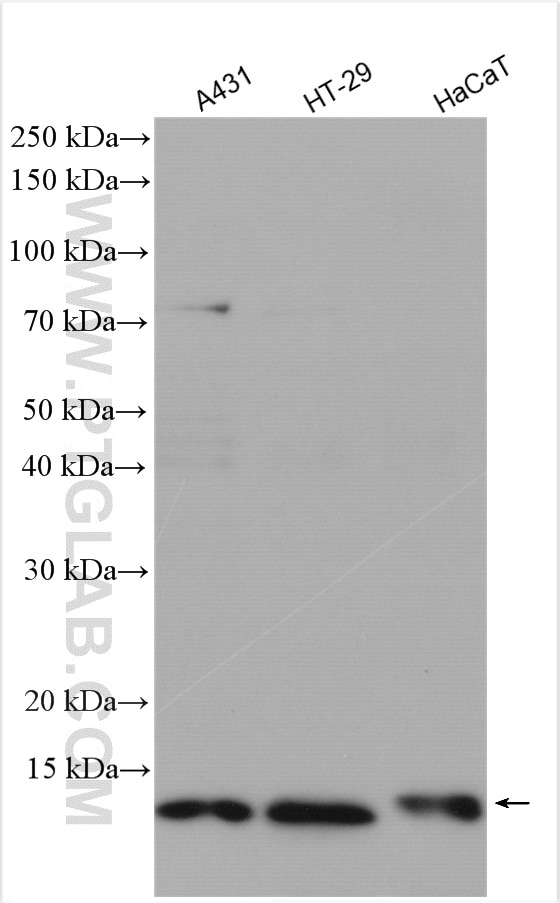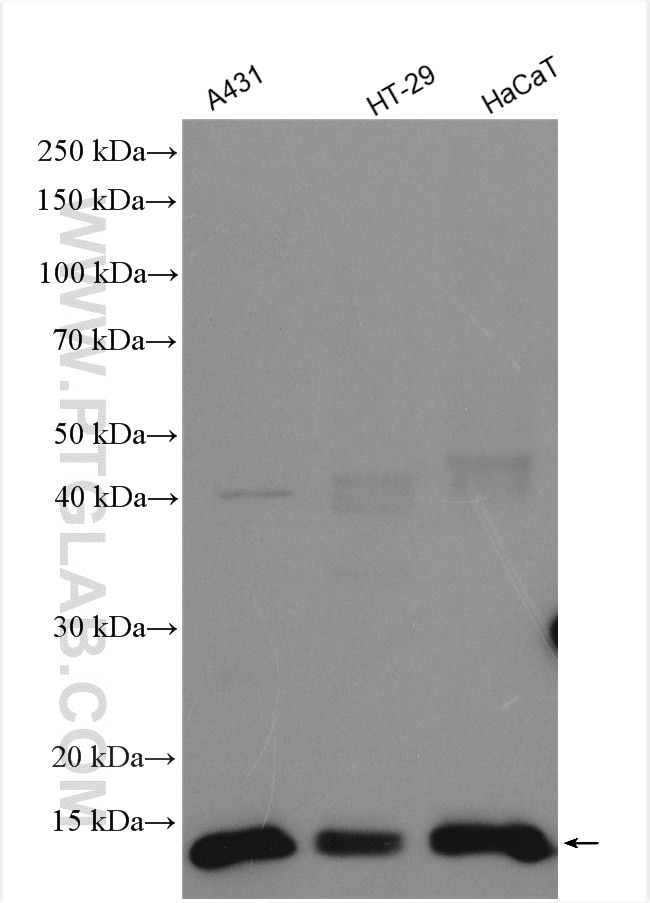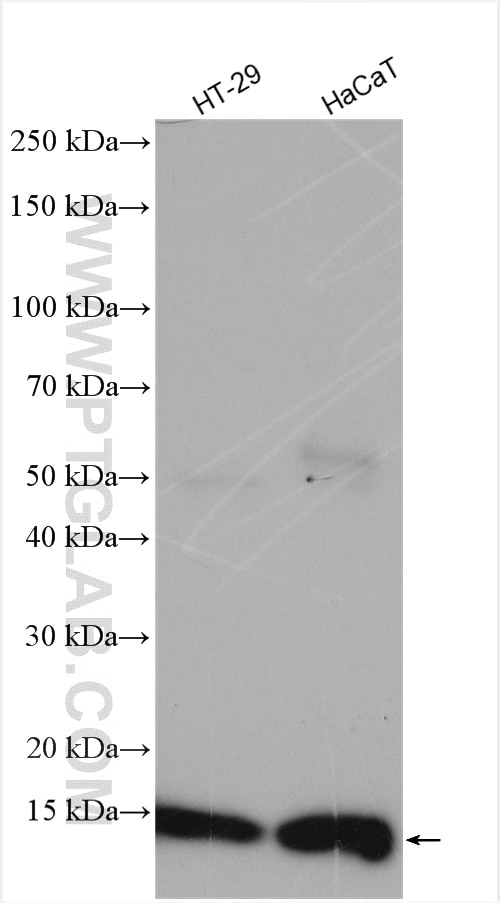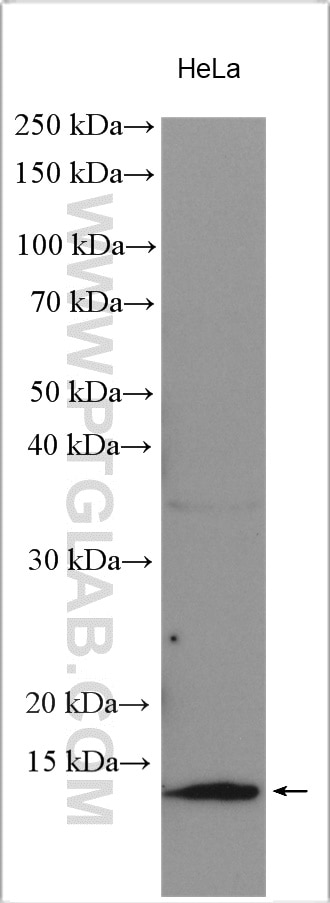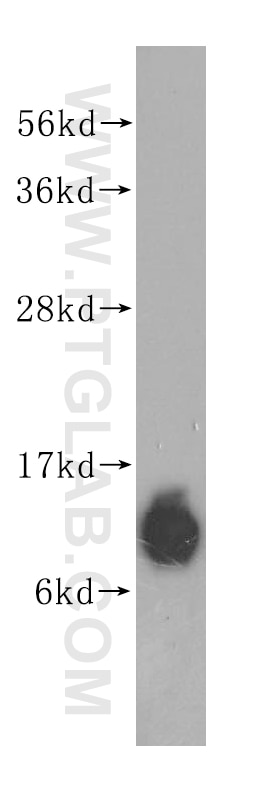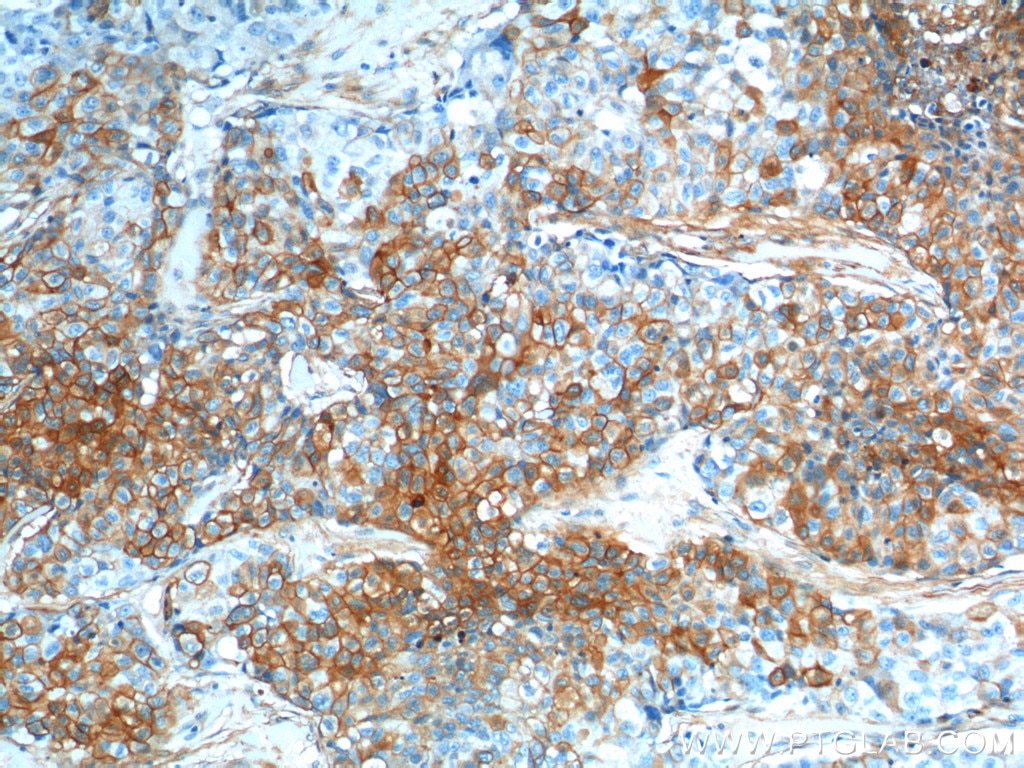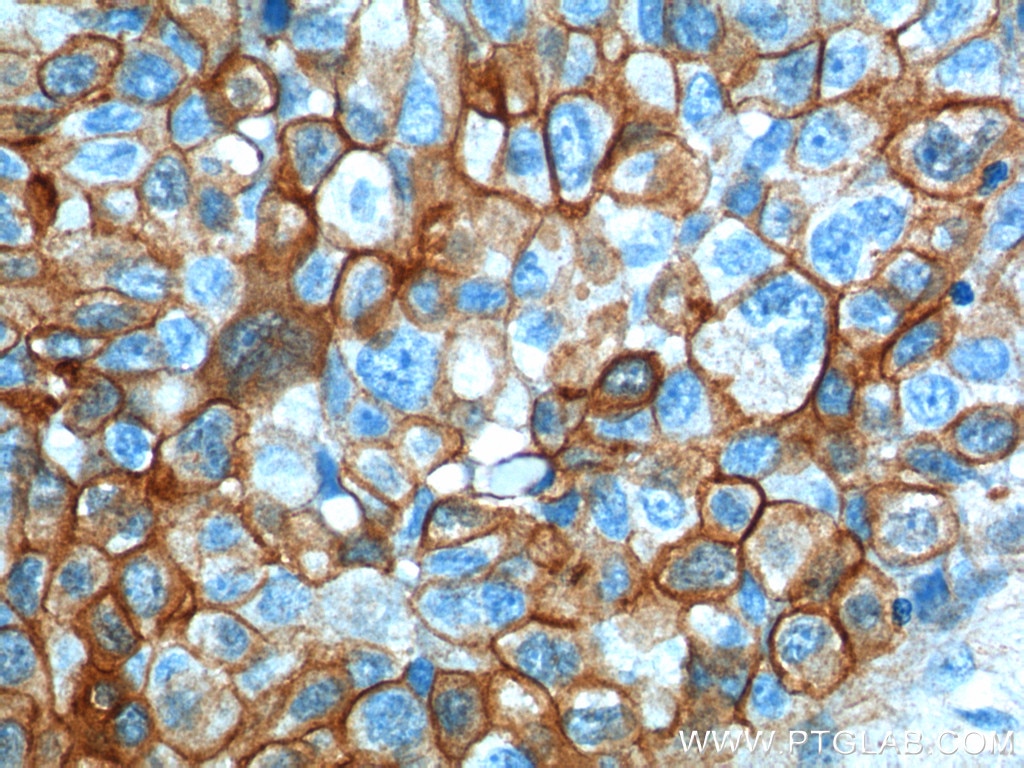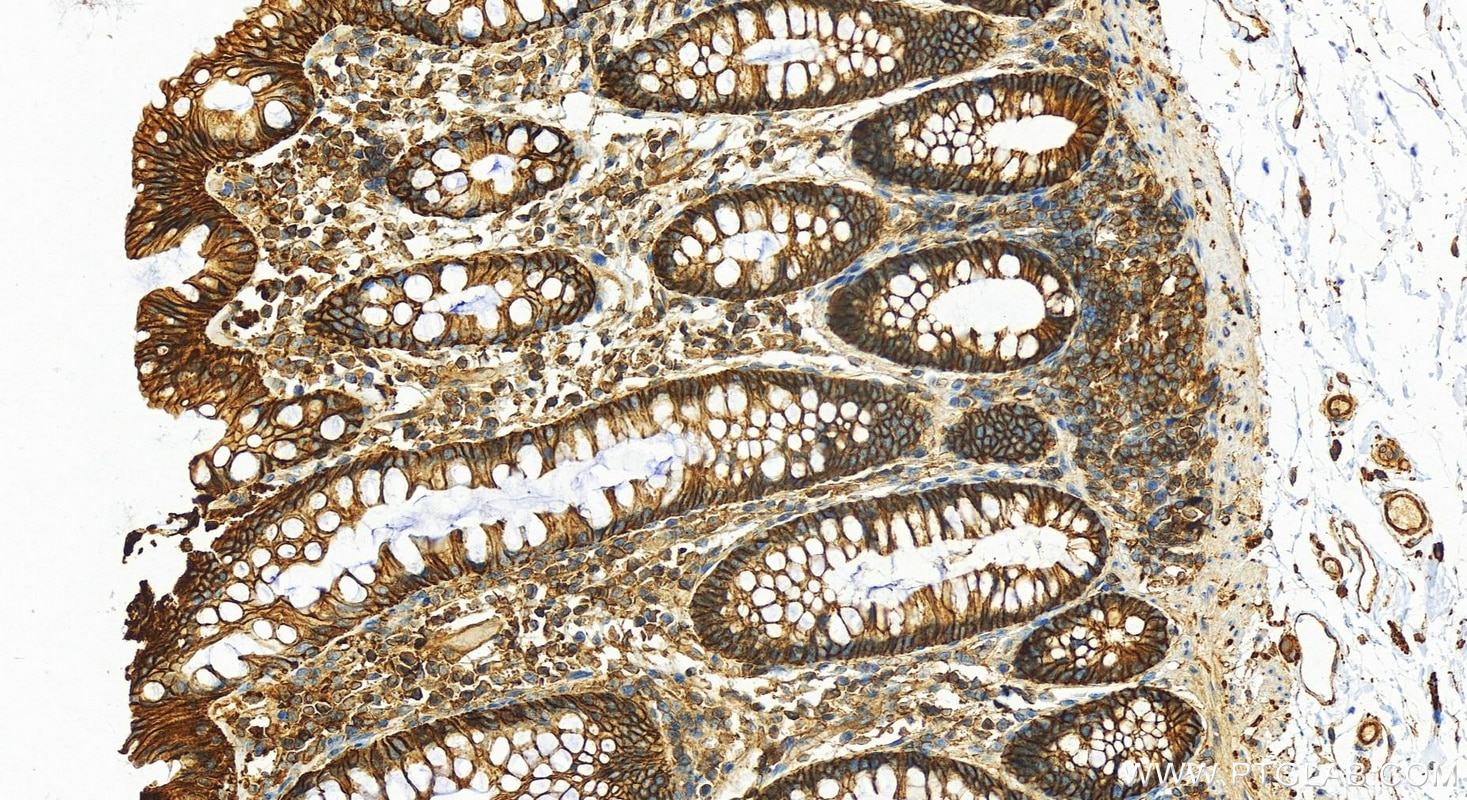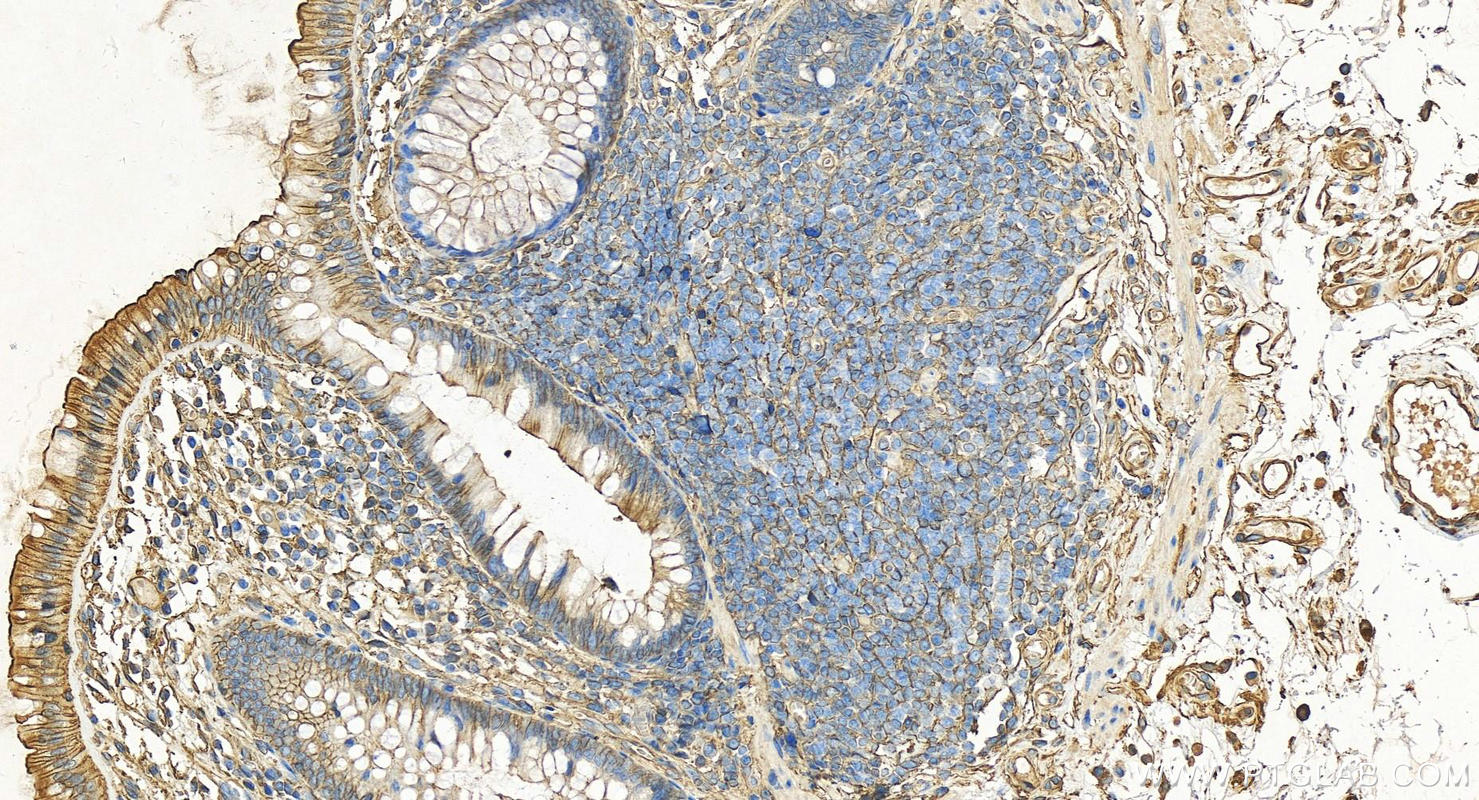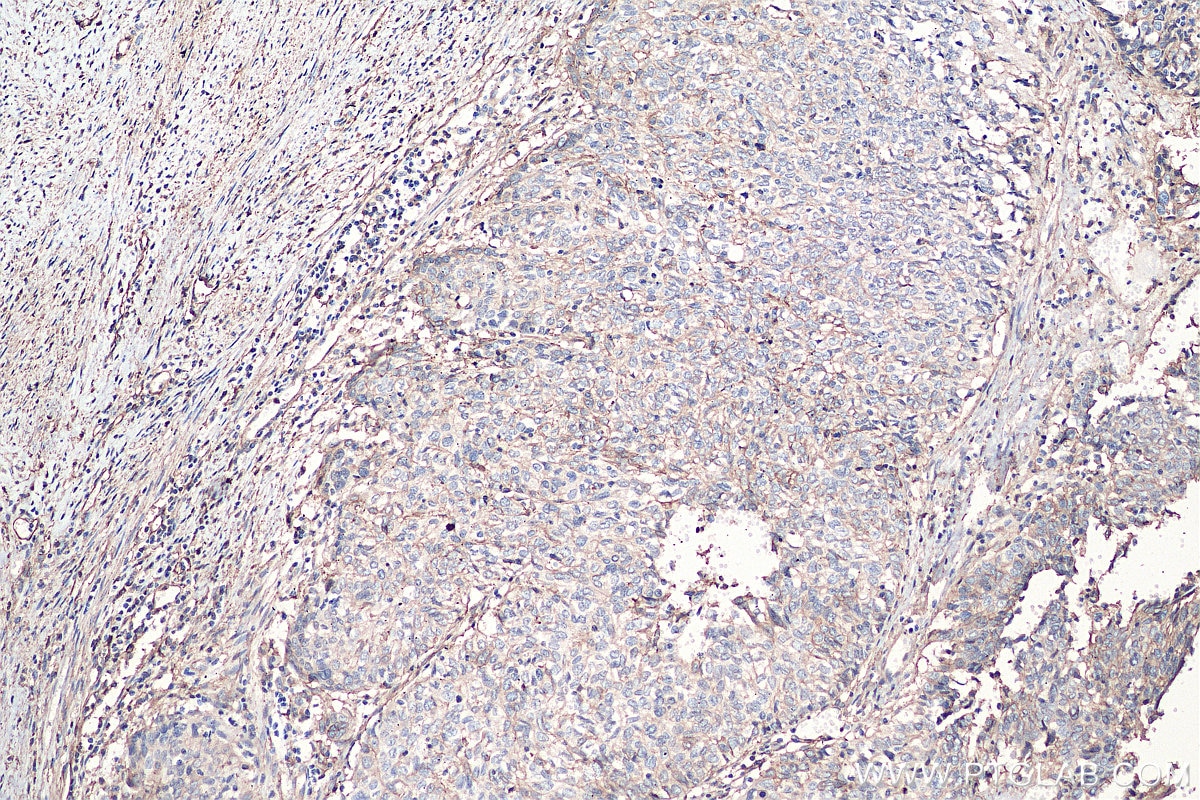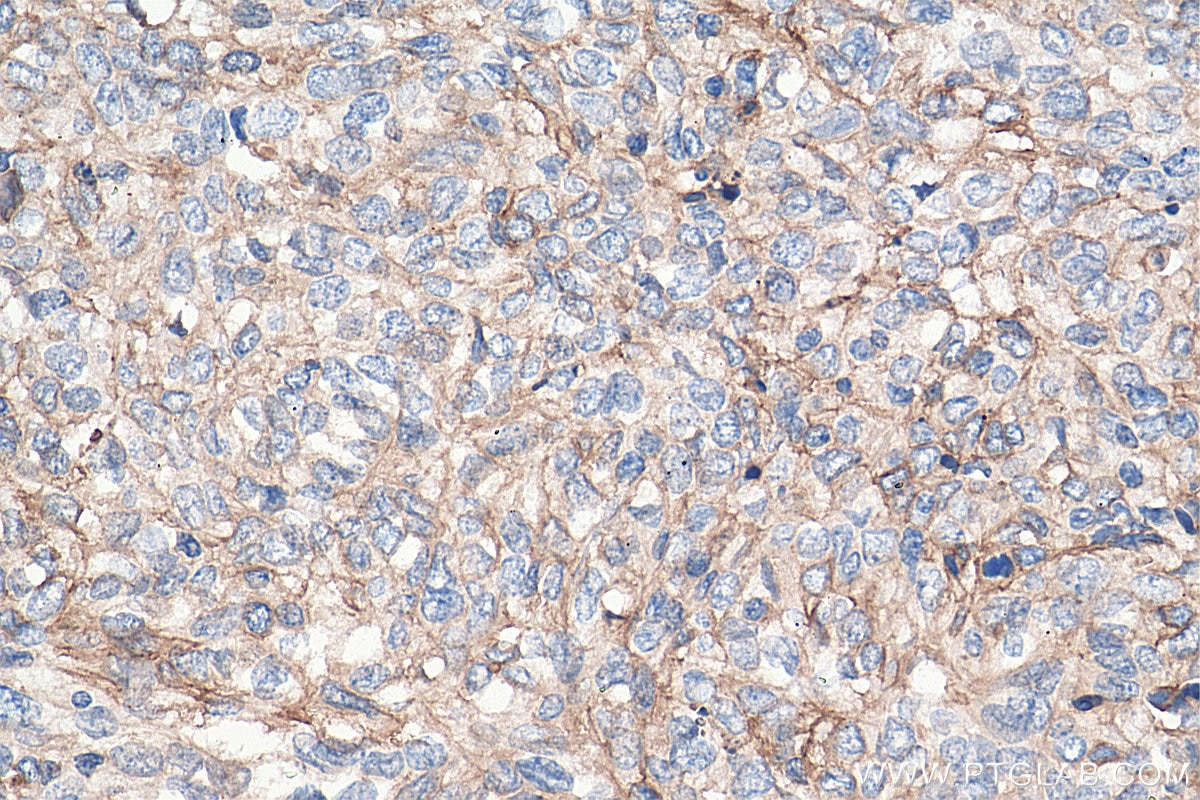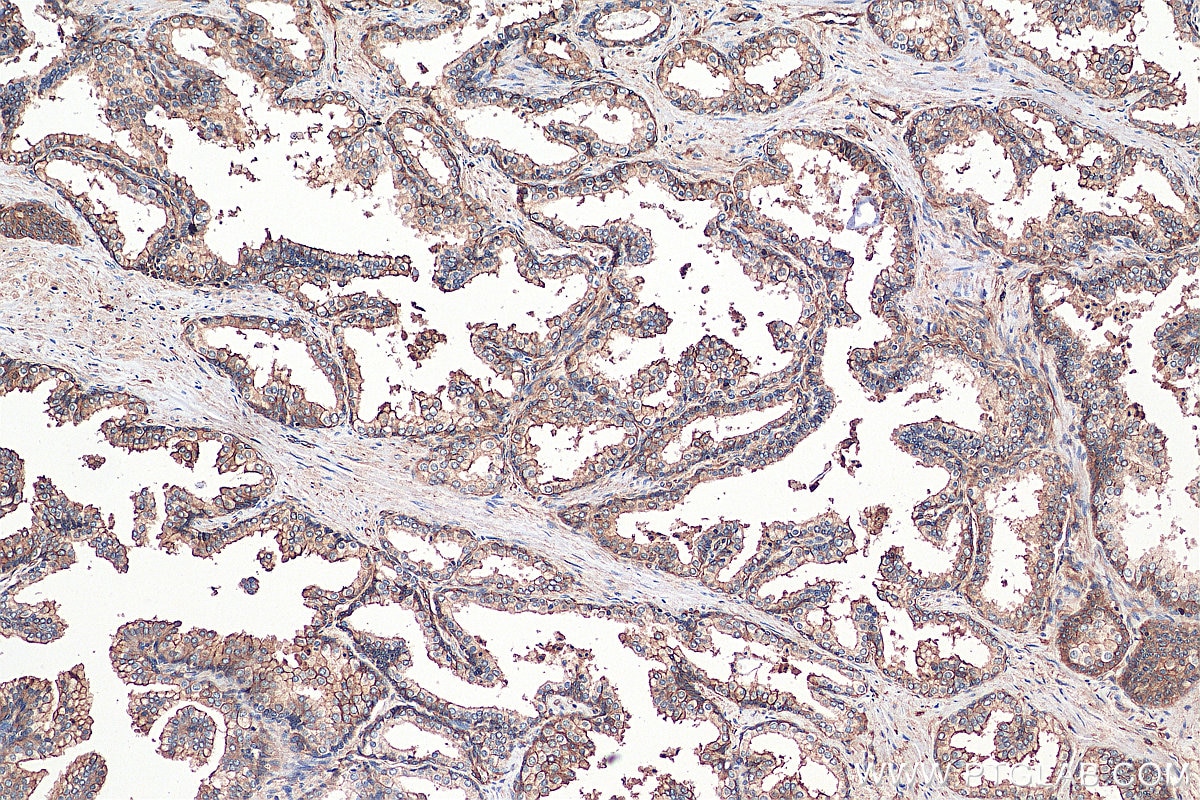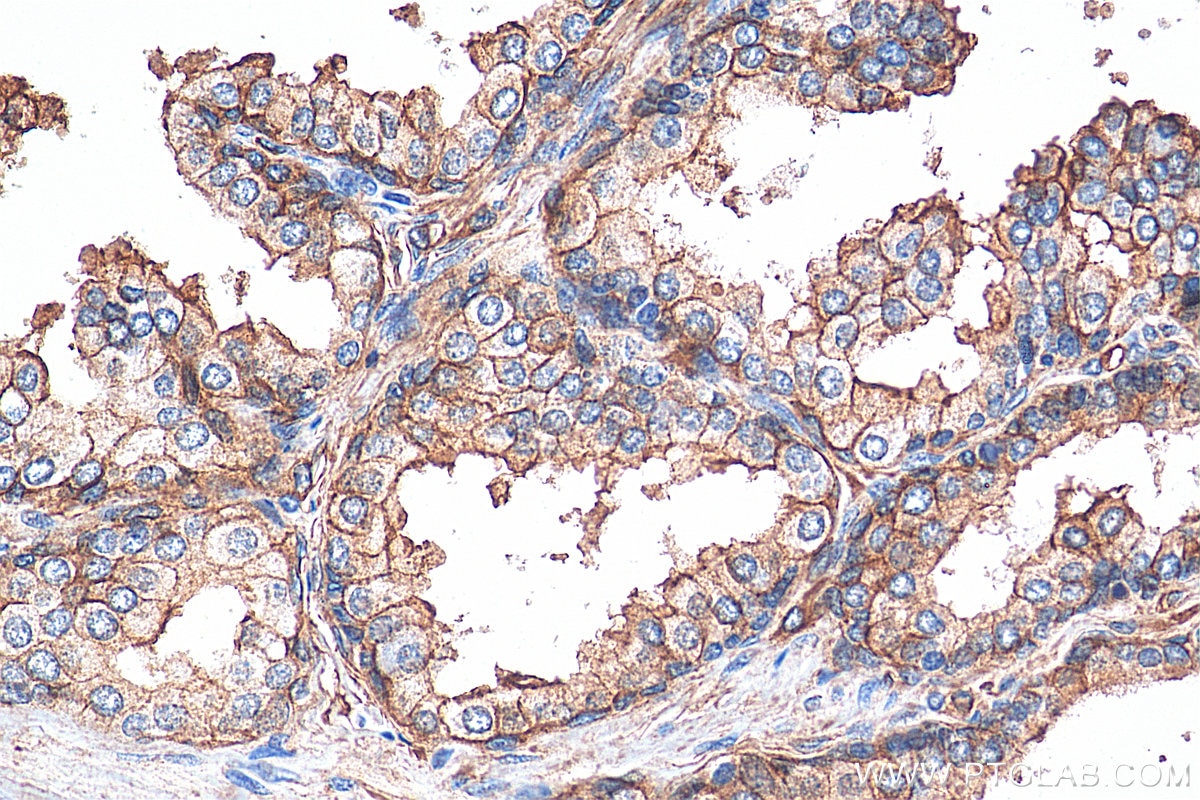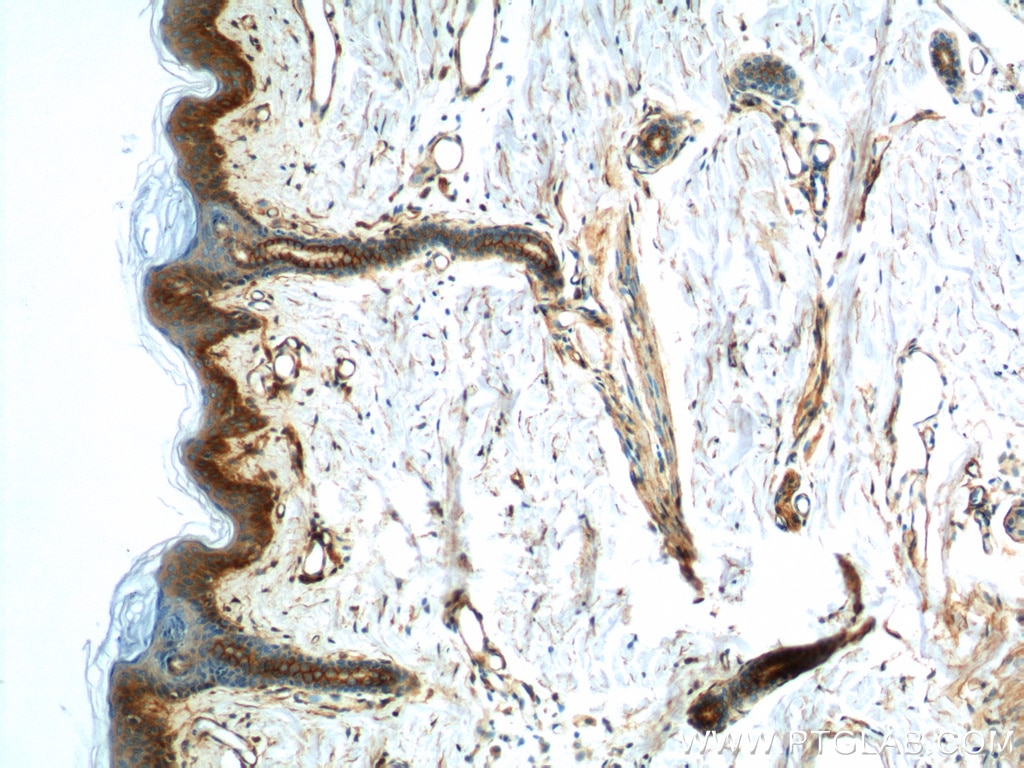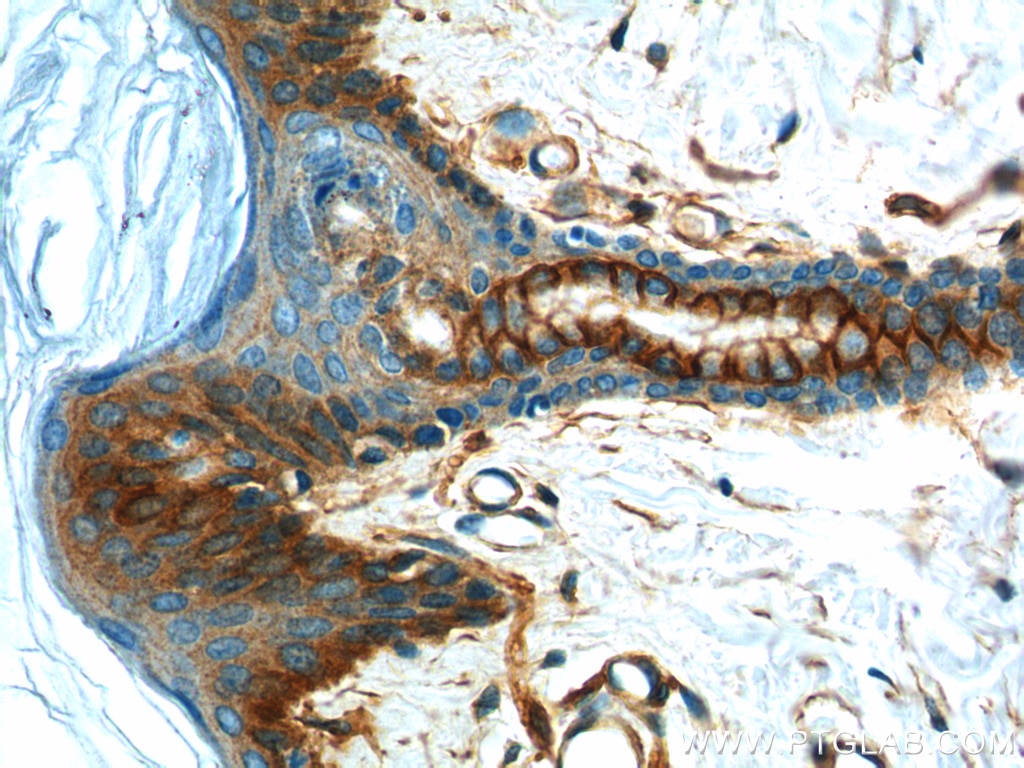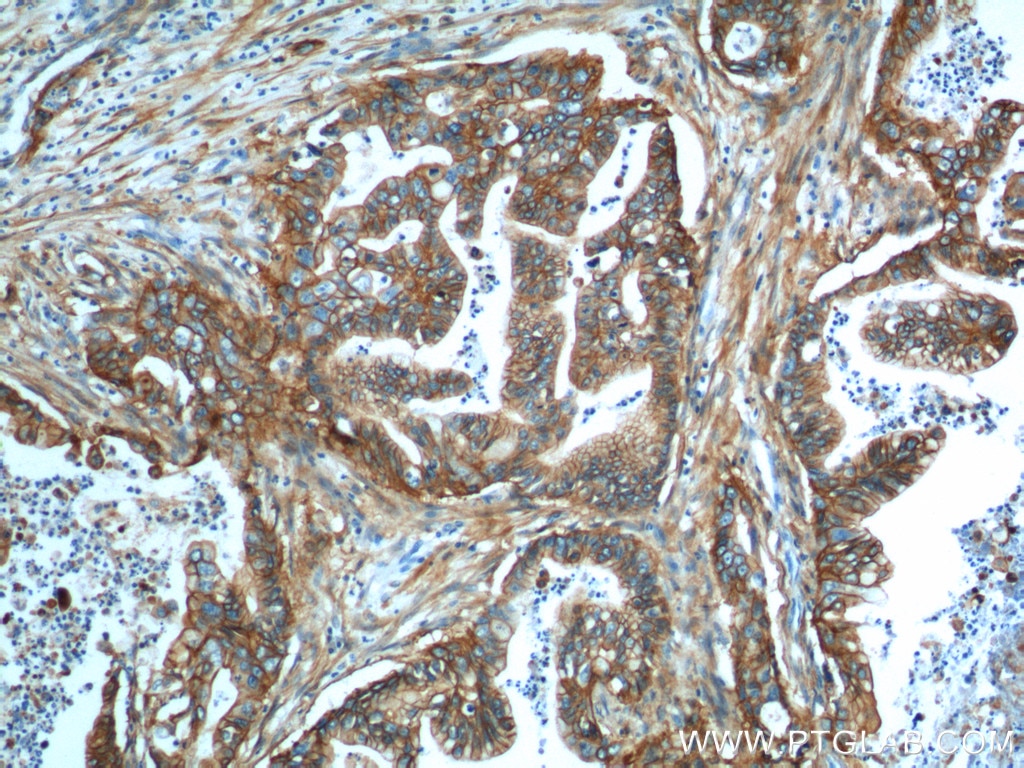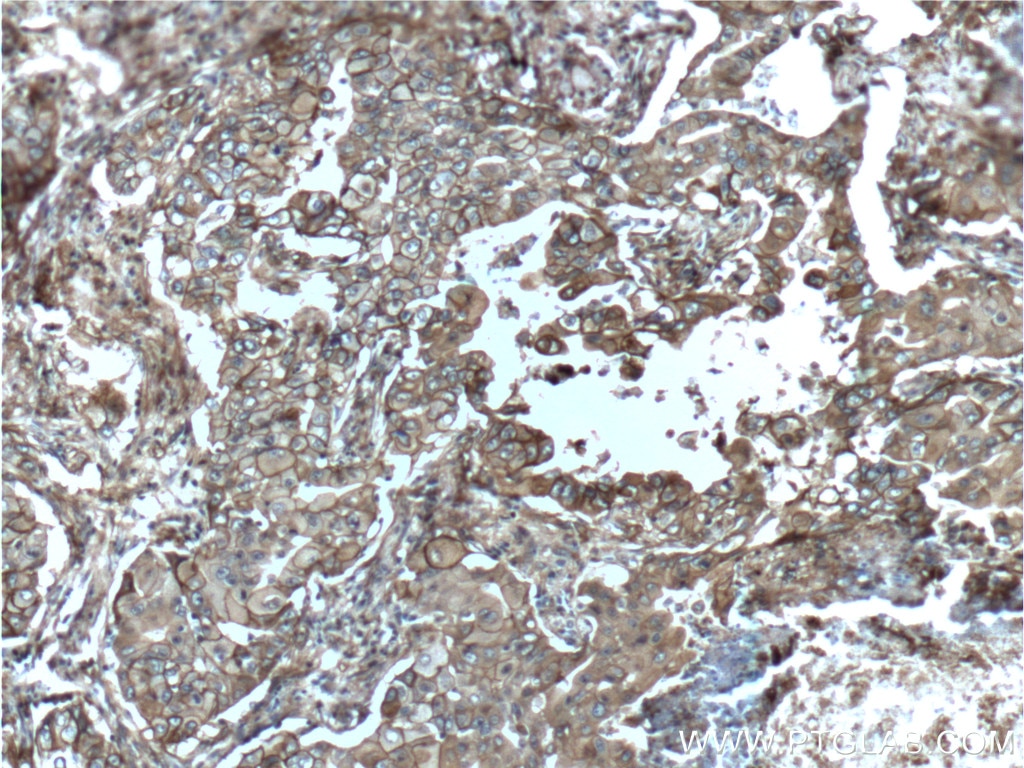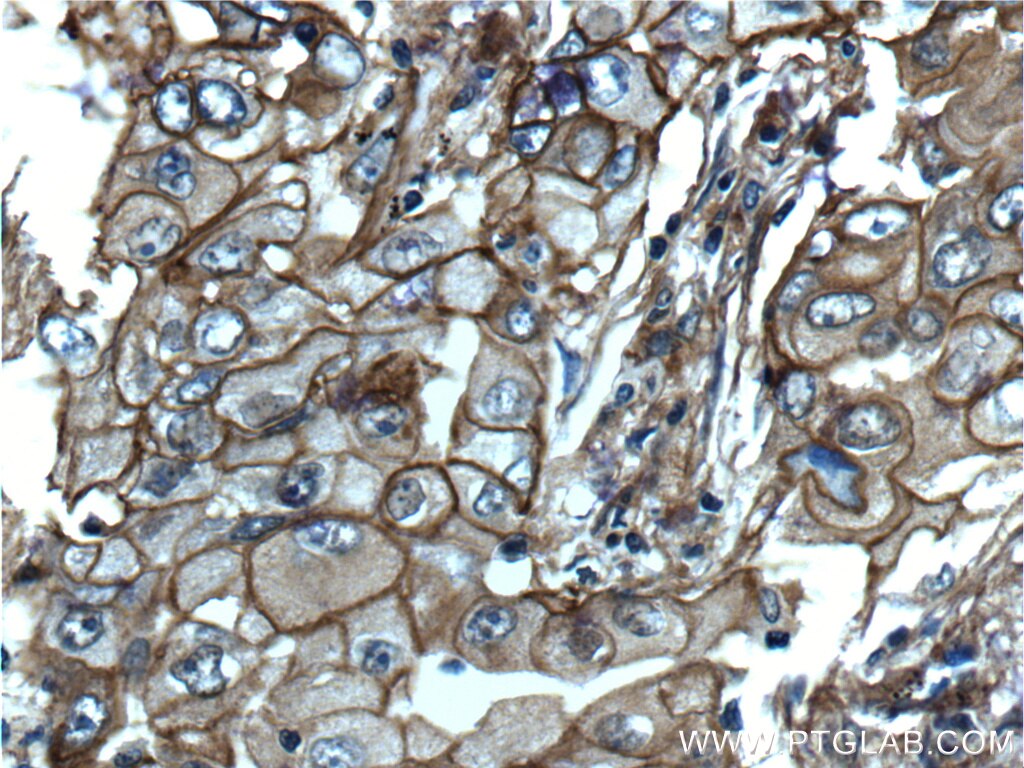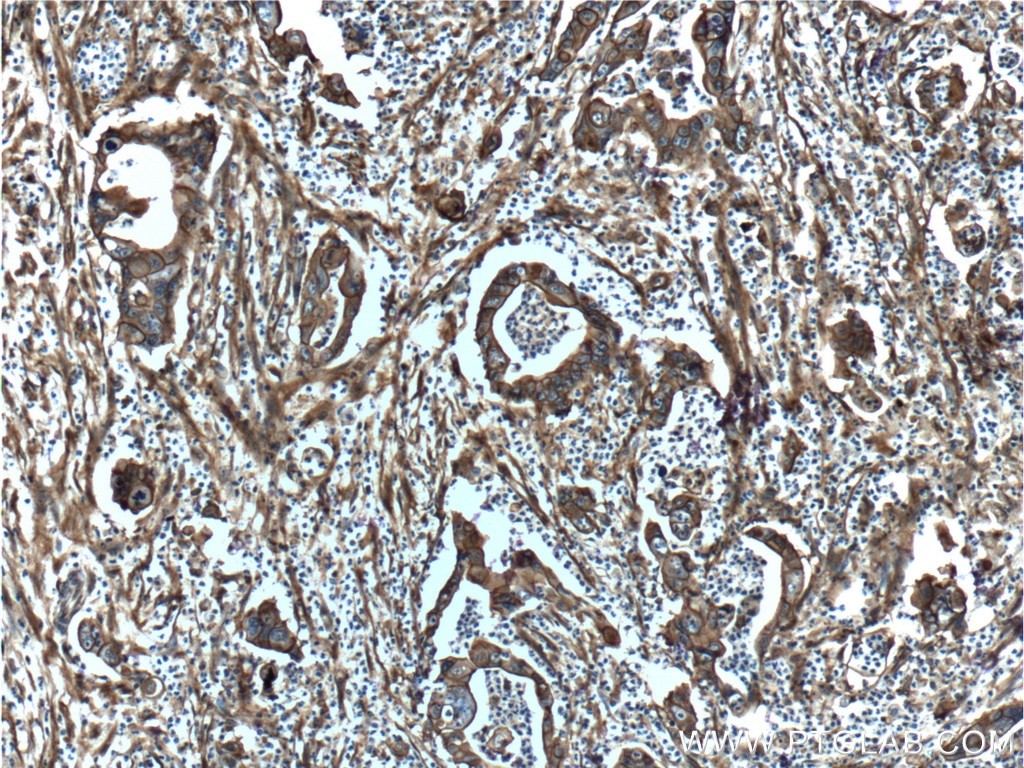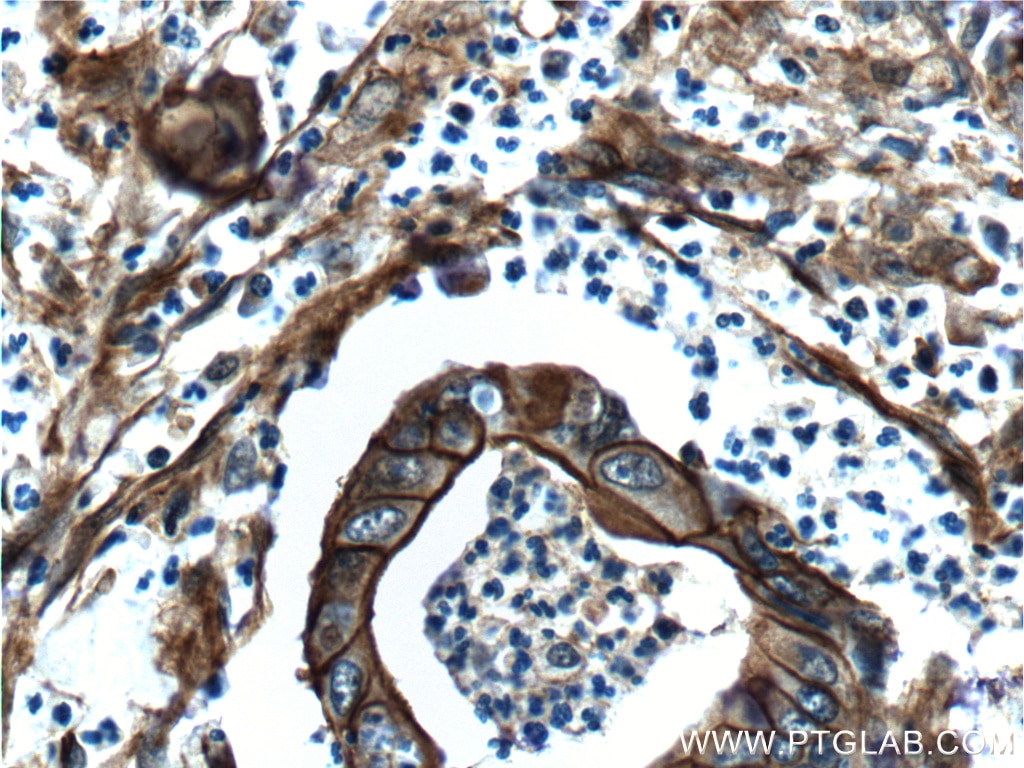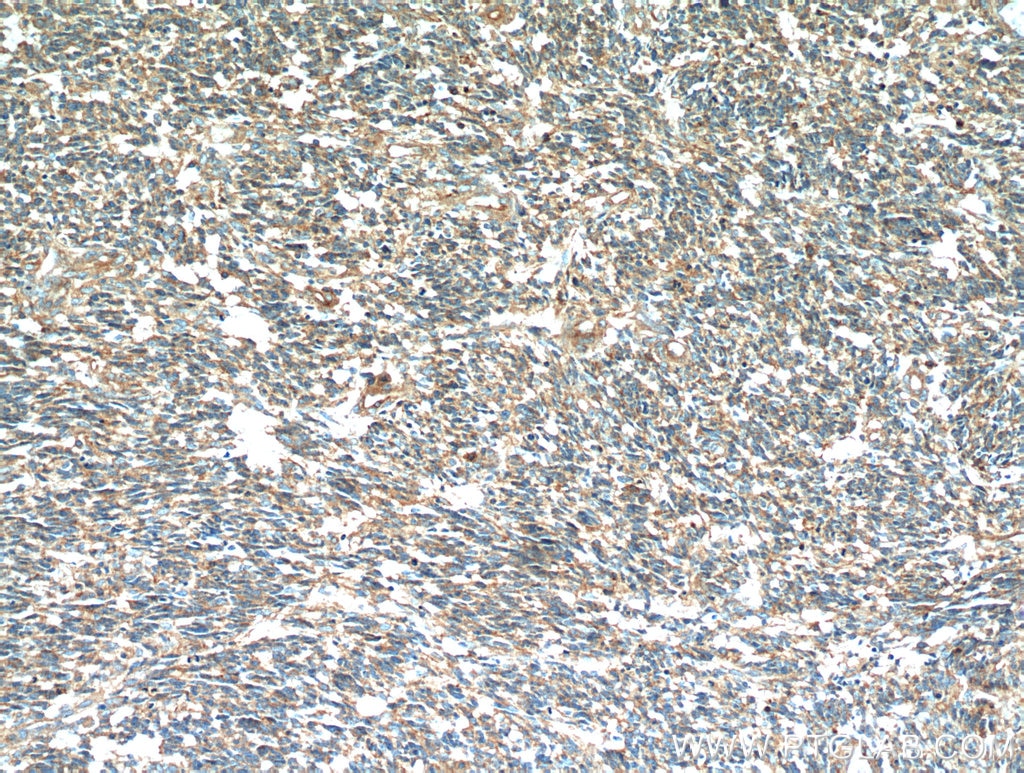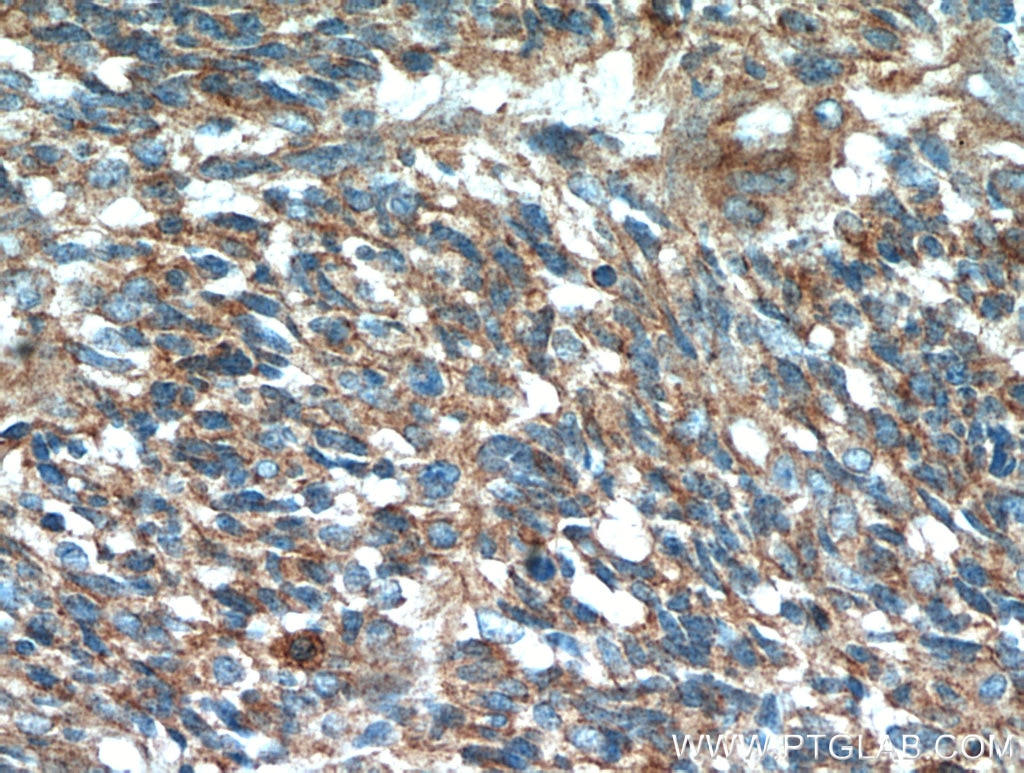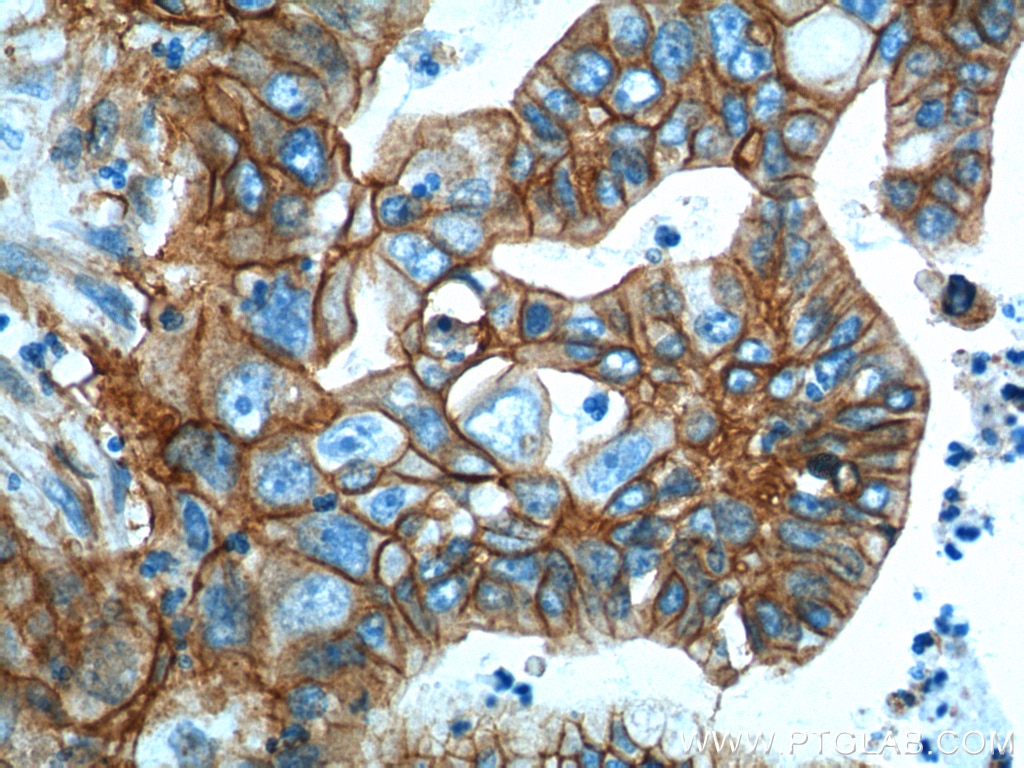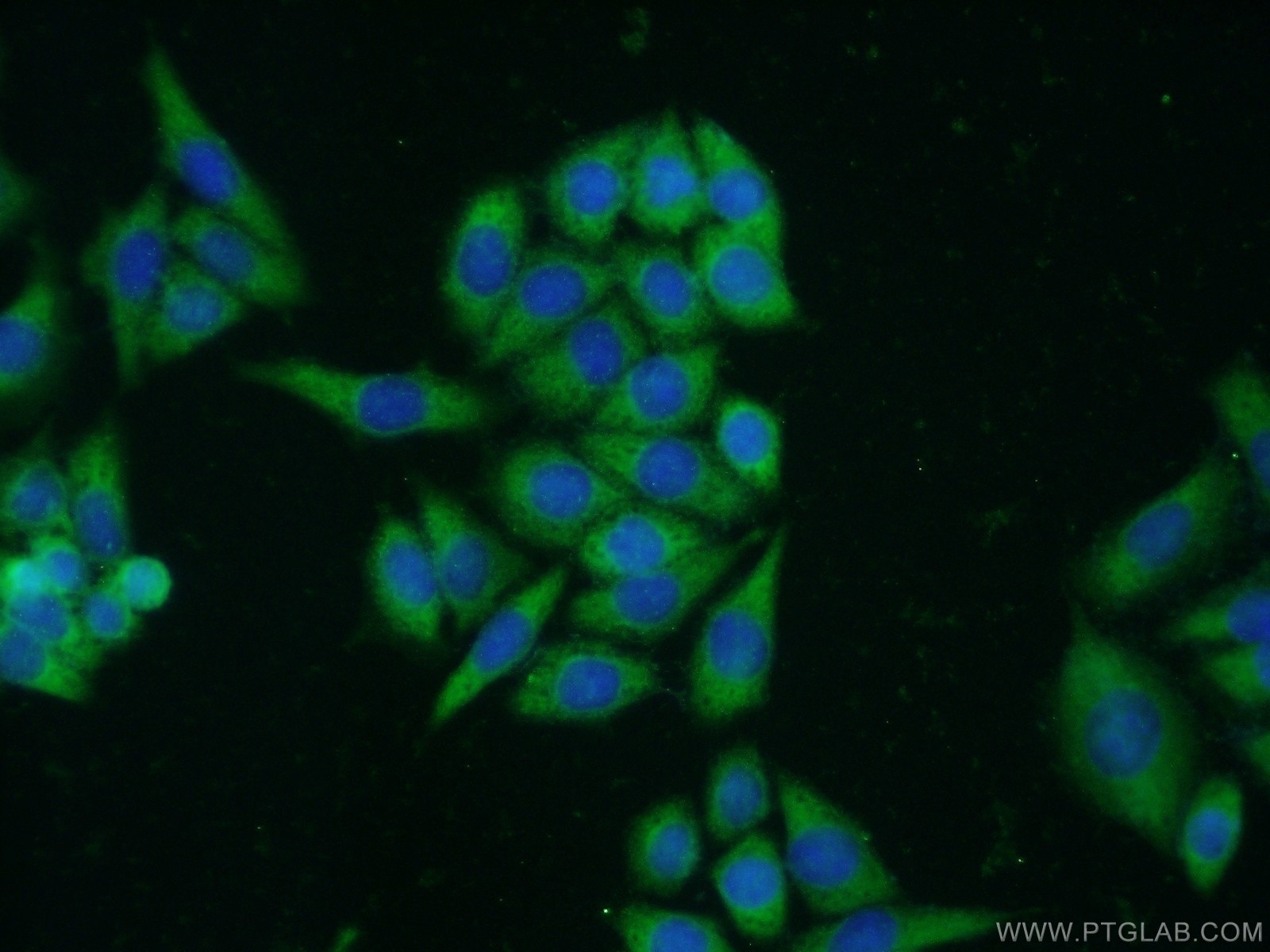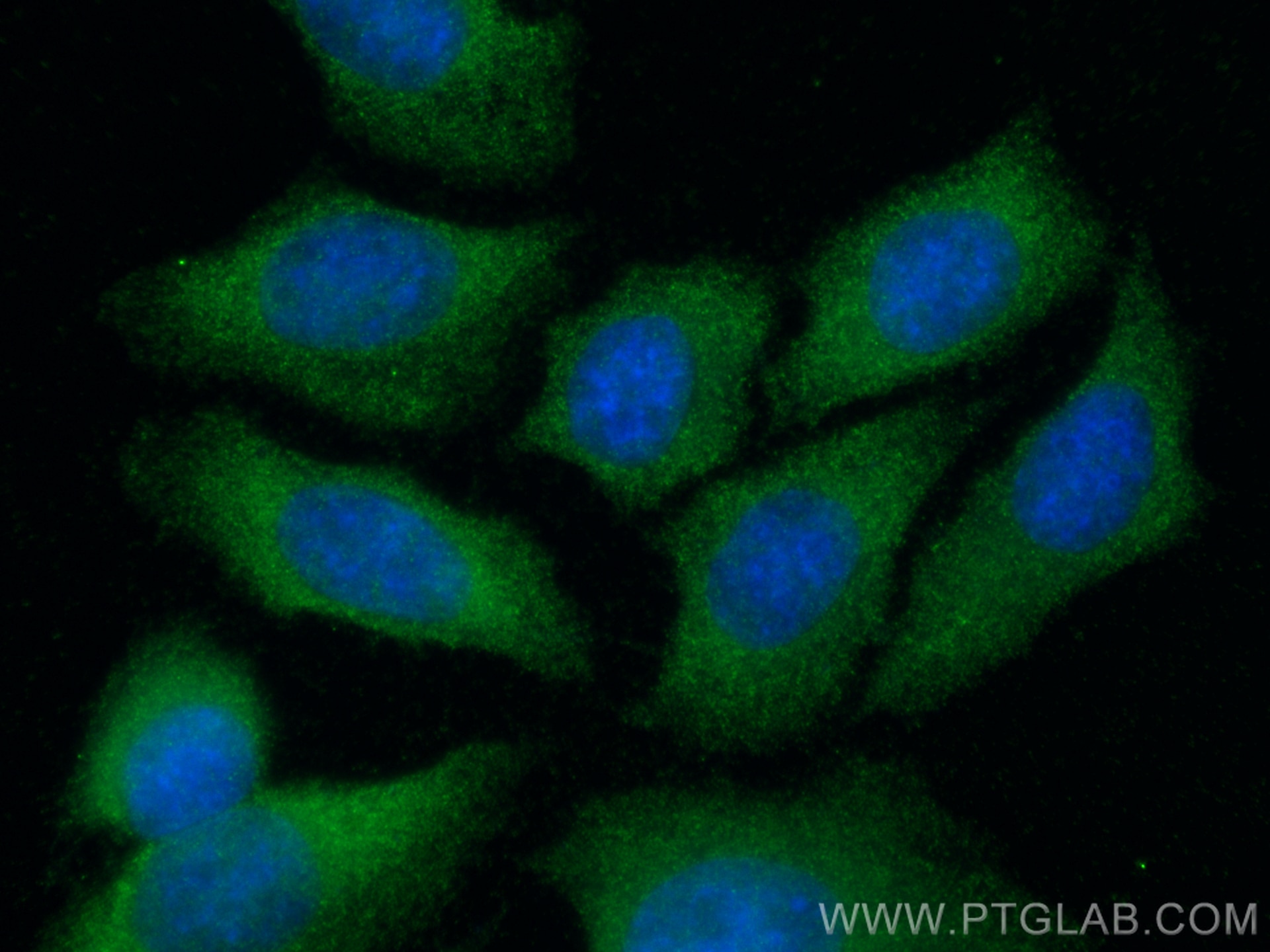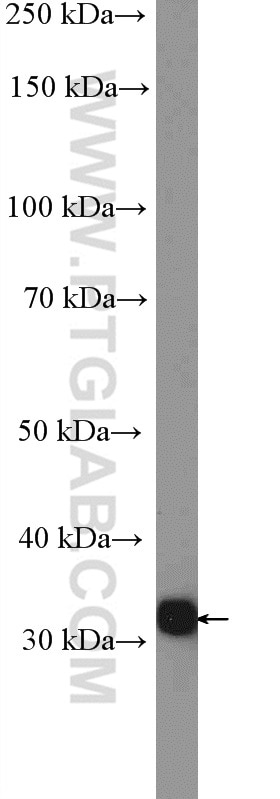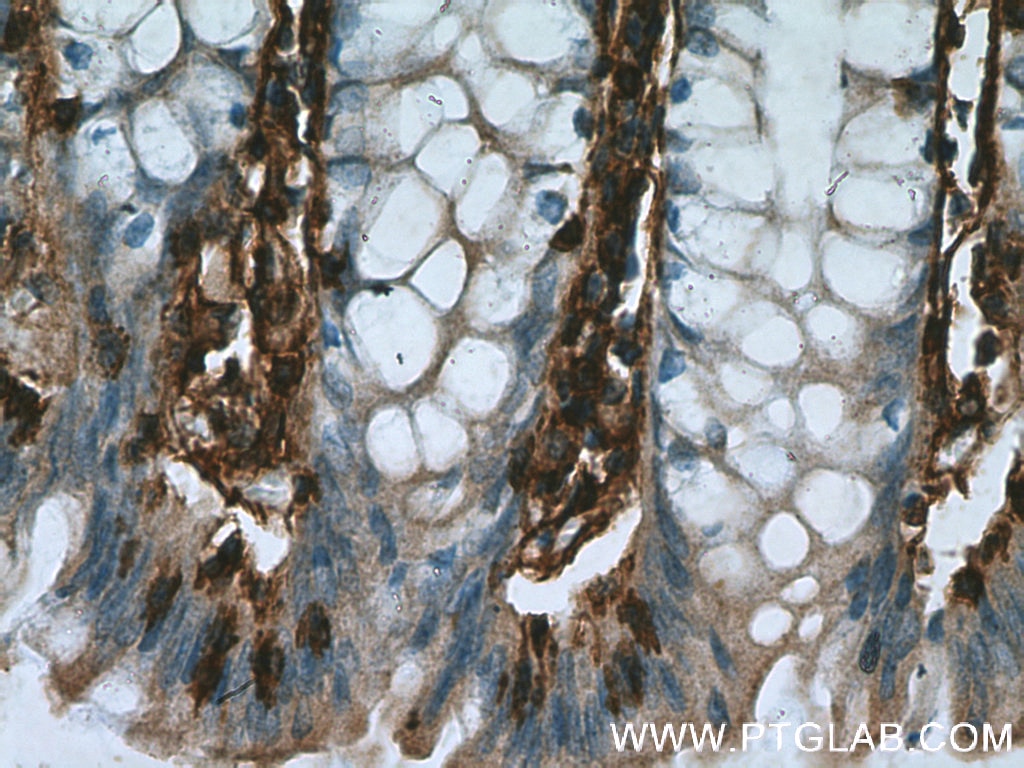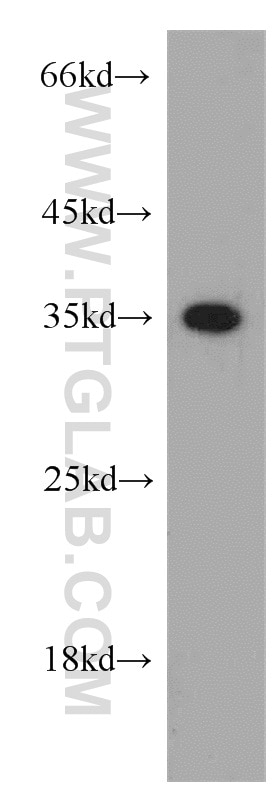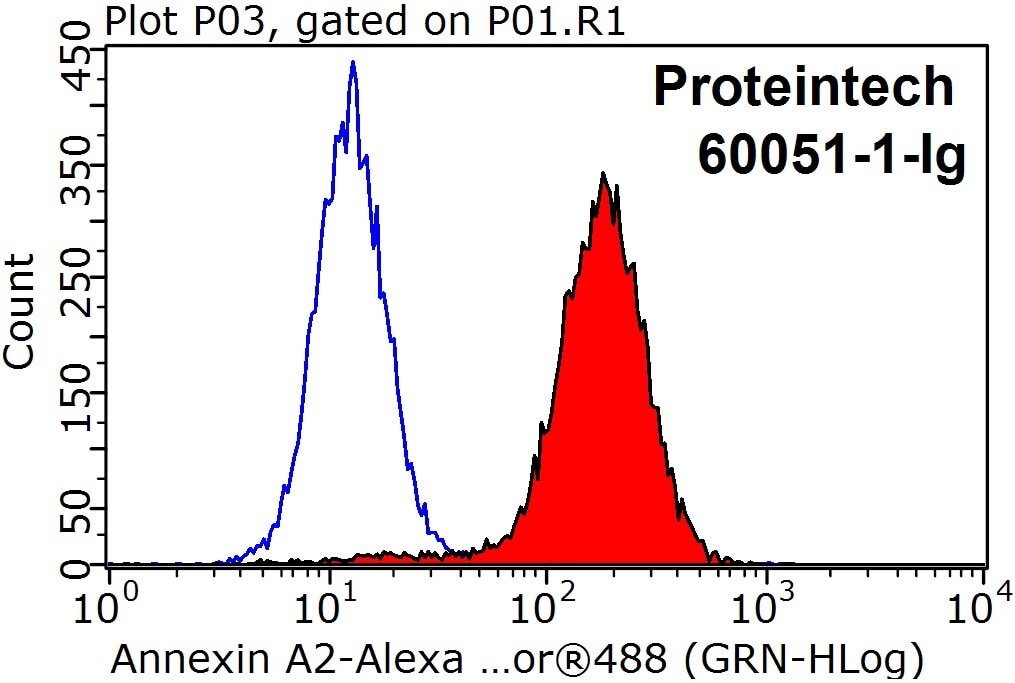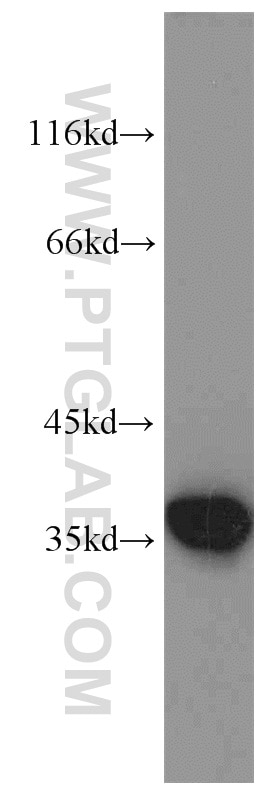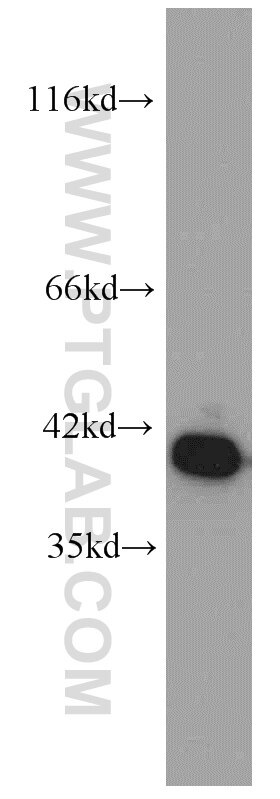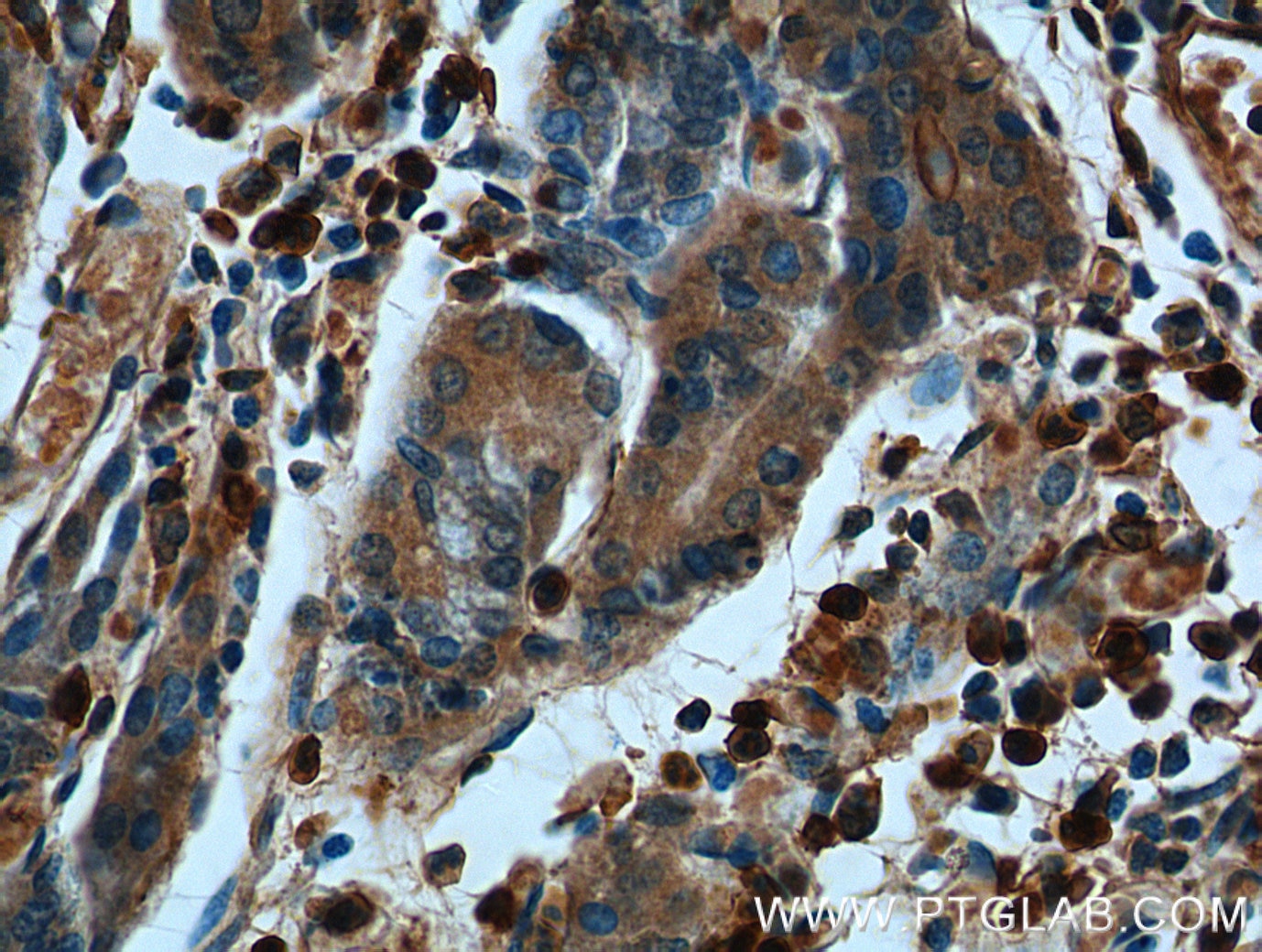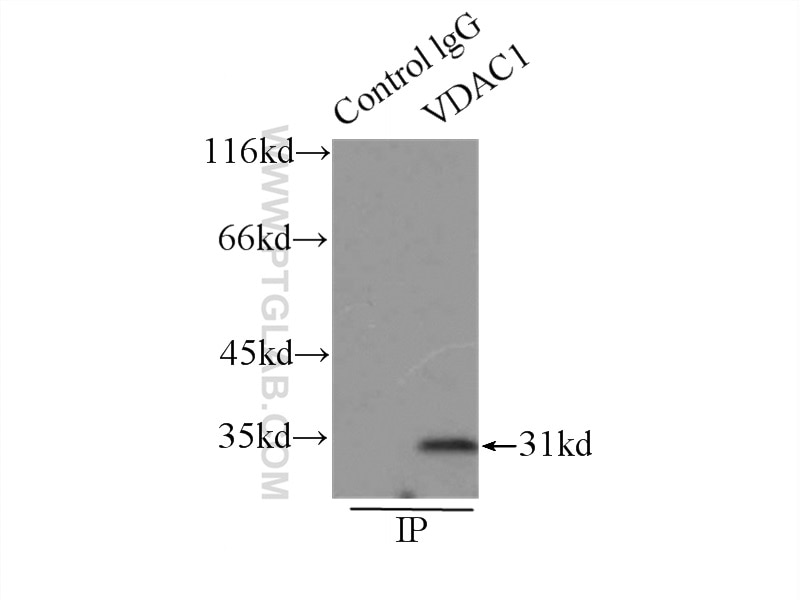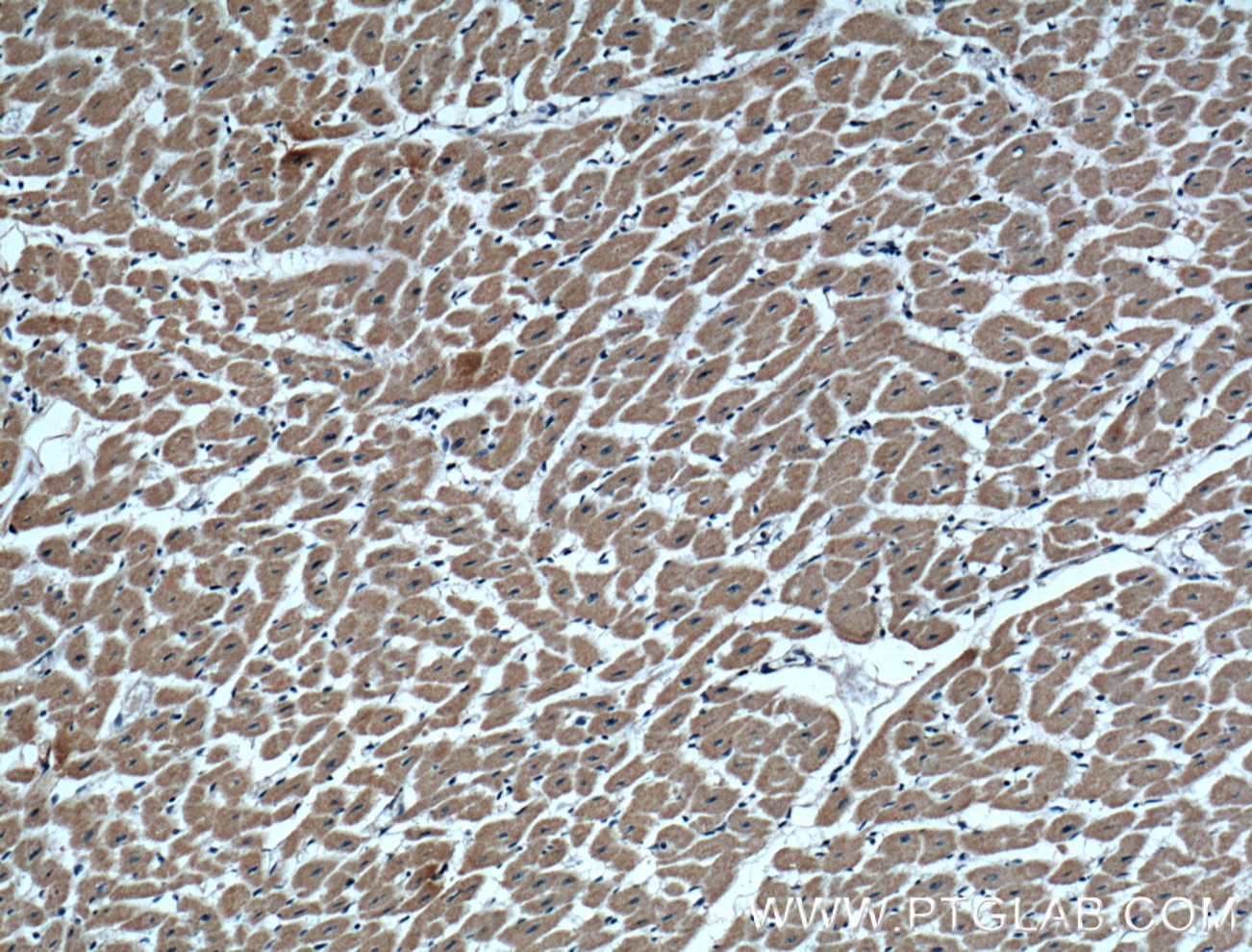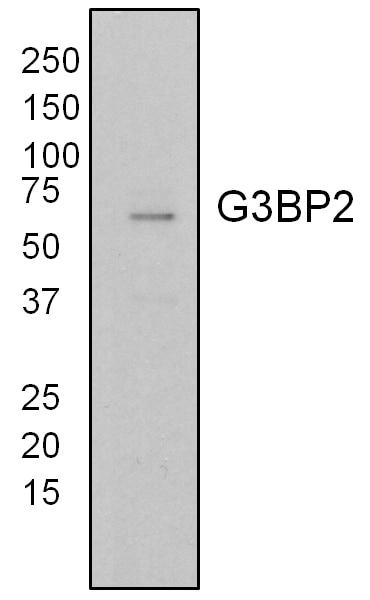- Featured Product
- KD/KO Validated
S100A10 Polyklonaler Antikörper
S100A10 Polyklonal Antikörper für WB, IHC, IF/ICC, ELISA
Wirt / Isotyp
Kaninchen / IgG
Getestete Reaktivität
human und mehr (2)
Anwendung
WB, IHC, IF/ICC, IP, ELISA
Konjugation
Unkonjugiert
Kat-Nr. : 11250-1-AP
Synonyme
Galerie der Validierungsdaten
Geprüfte Anwendungen
| Erfolgreiche Detektion in WB | A431-Zellen, HaCaT-Zellen, HeLa-Zellen, HT-29-Zellen, humanes Lungengewebe |
| Erfolgreiche Detektion in IHC | humanes Lungenkarzinomgewebe, humanes Gliomgewebe, humanes Hautgewebe, humanes Pankreaskarzinomgewebe, humanes Prostatahyperplasie-Gewebe, humanes Zervixkarzinomgewebe Hinweis: Antigendemaskierung mit TE-Puffer pH 9,0 empfohlen. (*) Wahlweise kann die Antigendemaskierung auch mit Citratpuffer pH 6,0 erfolgen. |
| Erfolgreiche Detektion in IF/ICC | HepG2-Zellen, HeLa-Zellen |
Empfohlene Verdünnung
| Anwendung | Verdünnung |
|---|---|
| Western Blot (WB) | WB : 1:500-1:2000 |
| Immunhistochemie (IHC) | IHC : 1:100-1:1000 |
| Immunfluoreszenz (IF)/ICC | IF/ICC : 1:50-1:500 |
| It is recommended that this reagent should be titrated in each testing system to obtain optimal results. | |
| Sample-dependent, check data in validation data gallery | |
Veröffentlichte Anwendungen
| KD/KO | See 6 publications below |
| WB | See 28 publications below |
| IHC | See 7 publications below |
| IF | See 19 publications below |
| IP | See 3 publications below |
| ELISA | See 1 publications below |
| FC | See 1 publications below |
Produktinformation
11250-1-AP bindet in WB, IHC, IF/ICC, IP, ELISA S100A10 und zeigt Reaktivität mit human
| Getestete Reaktivität | human |
| In Publikationen genannte Reaktivität | human, Maus, Ratte |
| Wirt / Isotyp | Kaninchen / IgG |
| Klonalität | Polyklonal |
| Typ | Antikörper |
| Immunogen | S100A10 fusion protein Ag1779 |
| Vollständiger Name | S100 calcium binding protein A10 |
| Berechnetes Molekulargewicht | 11 kDa |
| Beobachtetes Molekulargewicht | 11 kDa |
| GenBank-Zugangsnummer | BC015973 |
| Gene symbol | S100A10 |
| Gene ID (NCBI) | 6281 |
| Konjugation | Unkonjugiert |
| Form | Liquid |
| Reinigungsmethode | Antigen-Affinitätsreinigung |
| Lagerungspuffer | PBS mit 0.02% Natriumazid und 50% Glycerin pH 7.3. |
| Lagerungsbedingungen | Bei -20°C lagern. Nach dem Versand ein Jahr lang stabil Aliquotieren ist bei -20oC Lagerung nicht notwendig. 20ul Größen enthalten 0,1% BSA. |
Hintergrundinformationen
S100A10, also known as p11, is a member of the S100 family of small, EF hand containing dimeric proteins. S100 proteins are localized in the cytoplasm and/or nucleus of a wide range of cells, and involved in the regulation of a number of cellular processes such as cell cycle progression and differentiation. S100A10 is present on the surface of endothelial and other cells in a heterotetrameric complex with another Ca(2+)-binding protein, annexin II. S100A10 may function in exocytosis and endocytosis.
Protokolle
| Produktspezifische Protokolle | |
|---|---|
| WB protocol for S100A10 antibody 11250-1-AP | Protokoll herunterladen |
| IHC protocol for S100A10 antibody 11250-1-AP | Protokoll herunterladen |
| IF protocol for S100A10 antibody 11250-1-AP | Protokoll herunterladen |
| Standard-Protokolle | |
|---|---|
| Klicken Sie hier, um unsere Standardprotokolle anzuzeigen |
Publikationen
| Species | Application | Title |
|---|---|---|
Cell Mol Immunol Essential roles of S100A10 in Toll-like receptor signaling and immunity to infection. | ||
JCI Insight Fabry disease Schwann cells release p11 to induce sensory neuron hyperactivity | ||
Diabetes Deficiency of Mitochondrial Glycerol 3-Phosphate Dehydrogenase Exacerbates Podocyte Injury and the Progression of Diabetic Kidney Disease.
| ||
J Nanobiotechnology Extracellular vesicles derived from CD73 modified human umbilical cord mesenchymal stem cells ameliorate inflammation after spinal cord injury | ||
J Med Chem 5α-Epoxyalantolactone Inhibits Metastasis of Triple-Negative Breast Cancer Cells by Covalently Binding a Conserved Cysteine of Annexin A2. | ||
Cancers (Basel) S100A10 Has a Critical Regulatory Function in Mammary Tumor Growth and Metastasis: Insights Using MMTV-PyMT Oncomice and Clinical Patient Sample Analysis.
|
